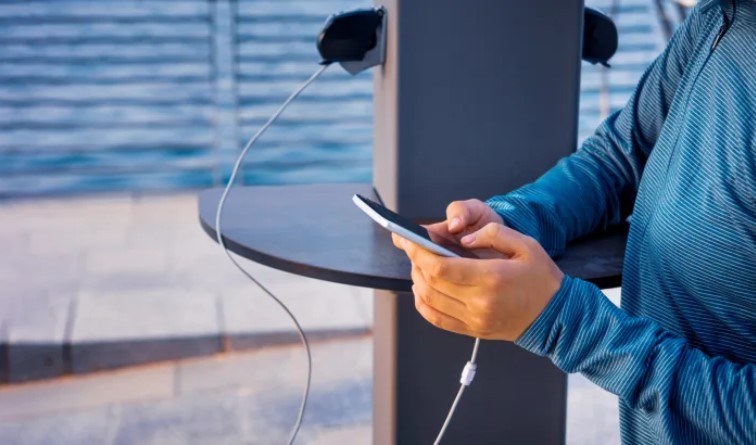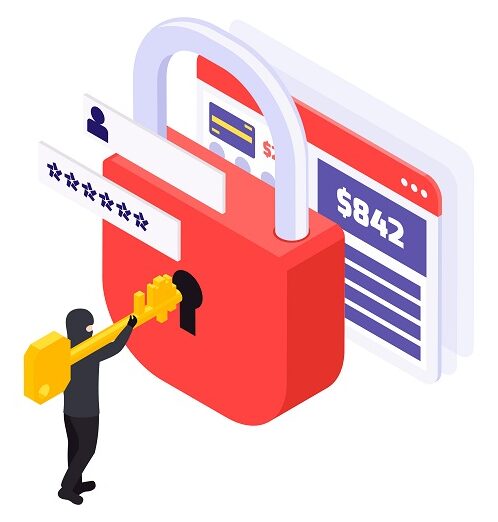- Juice jacking is a type of cyberattack in which tampered public USB chargers are used to hack your phone to extract valuable data from it.
- It’s hard to carry out this type of hack and the chances of it happening to you are very little.
- But, measures like: using charge-only cables, carrying a portable charger, or using AC wall sockets to charge instead, can protect you further. Make sure your phone has a password-lock, and that your OS and apps are updated.
We’ve all been in situations where we’re running low on battery in our phones while out in public. In such cases, you would probably be ecstatic to find a public USB charging port. But, is it really safe to use these chargers? Let’s talk about it.
Juice Jacking: The Potential Danger Of Public USB Chargers

Juice jacking refers to a type of cyberattack in which public USB chargers are tampered with or tampered ports are installed with the purpose of an attack. Behind the ports would be a tiny computer, like a Raspberry Pi, that is capable of executing code in your phone to hijack it. This hijacking can allow hackers to steal your personal information or even remotely control your phone.
The process could involve just the charging port, or a port with a cable attached to it too. In any case, since the cables used to charge your phone can also be used to transfer data, your phone could be compromised through them.
It’s highly improbable that you will come across such an attack even if you use a public charging port, though.
The Odds Are Very Low
Juice jacking is a very inconvenient hack to pull off, which is why no case of it has been seen in recent times (as reported by FCC). This is because every modern smartphone will have some level of security to protect itself against such an attack.
Also, the code needed to execute such attacks is very specific for each phone, which keeps the chances of this happening to you to a minimum. A hacker would need to make a very calculated plan to target us, which just wouldn’t be worth it. I mean, what could you or me even be hiding in there!?
There are easier hacks that an attacker could use (such as a public Wi-Fi network or prompting you to click a link) to hijack your device. These types of hacks are what you should really be vary of.
In Case You Want To Be Extra Sure

I’ve still laid out a few important tips to further minimize your chances of becoming a target for juice jacking:
- Use a charging-only cable: You can buy cables that only charge your phone and do not allow any sort of data transfer.
- Carry a power bank: Power banks or portable chargers are a great way to keep your devices running without needing to rely on public USB chargers.
- Only use electrical sockets: Another thing you can do is to use AC sockets instead.
- Never approve any shady messages: If you come across a message that asks for any kind of permission, reject it. On the Apple iPhone, it would likely ask “Trust This Computer?,” in which you should press “Don’t Trust.” For Android phones, you may see a prompt asking “Use USB To,” where you should only select “Charge Only.”
- Passcodes: Always make sure your phone is locked with a passcode before you hook up the public USB charger to your phone. For additional protection, add separate locks to important apps such as WhatsApp and your banking app(s).
- Keep things updated: Make sure to keep your phone’s software up-to-date, as software updates often involve security fixes that are crucial for protecting your phone. Similarly, keep all your important apps updated.
We Should Be Safe
Juice jacking has emerged as a cyberattack that, yes, is possible to carry out. But the odds of it happening to you or me are far too low due to the specificity of the software needed to carry it out. Also, modern smartphones have security set in place to prevent against such attacks. Due to these factors, there hasn’t been any actual reported case of juice jacking so far.
Still, if you want to go the extra mile to make sure you’re secure, you can try charging-only cables, purchasing a portable charger, or just use electrical sockets to charge instead. Keep your phone locked while you charge and your phone’s software updated, and never approve messages asking for data transfer.
Thank you! Please share your positive feedback. 🔋
How could we improve this post? Please Help us. 😔
[Hardware Reviewer]
Hi! I’m Ali Tauseef, and I have been writing for Tech4Gamers since 2022. I love all things computer hardware but am particularly fond of CPUs and motherboards, and I like to stay up-to-date about the latest advancements in these worlds, and when possible, write about it. When I’m not doing that, I like to get into a little FPS action in CS2 or get lost in the vast world of RDR2.
Get In Touch: ali@tech4gamers.com


 Threads
Threads

